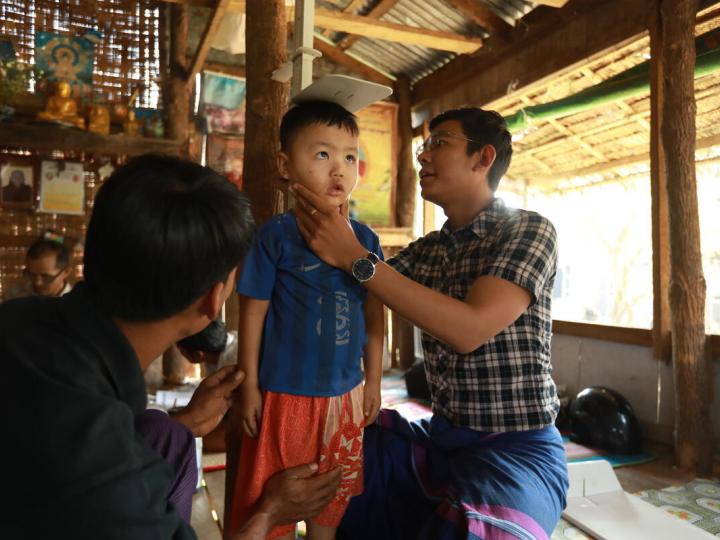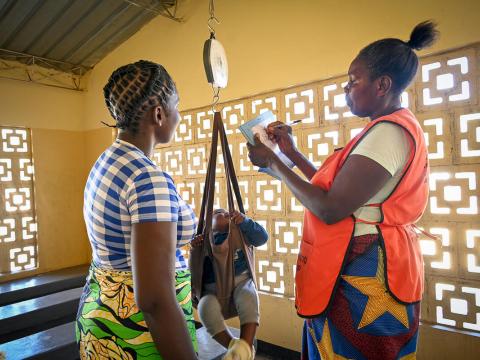
Monitoring Child Growth
Why Monitor Child Growth?
Malnutrition in the early years of life can have devastating short- and long-term consequences for individuals, families, and entire communities. Regular growth monitoring helps detect early signs of undernutrition and ensures timely support for children to grow, learn, and thrive.
The consequences of early childhood malnutrition
- Weakened immunity: Undernourished children are more vulnerable to infections and disease.
- Impaired development: Malnutrition can limit a child’s physical growth and cognitive potential.
- Educational setbacks: Children who are malnourished often struggle to concentrate and perform well in school.
- Increased health risks: Poor nutrition in early life raises the likelihood of chronic diseases in adulthood.
- Reduced economic potential: Malnourished children may grow into adults with lower productivity, affecting household and national economies.

Growth Monitoring and Promotion (GMP)
Growth Monitoring and Promotion (GMP) is a vital, community-based programme that plays a key role in improving child health and nutrition. Endorsed by many countries, GMP offers tremendous potential to advance both individual and public health goals.
GMP helps to:
- Identify and refer malnourished children early: Regular screening enables timely intervention before malnutrition becomes severe.
- Support Primary Health Care delivery: GMP provides an accessible platform for delivering essential health services at the community level.
- Advance Universal Health Coverage (UHC): By bringing services closer to families, GMP contributes to equitable access to health care.
- Serve as an entry point to broader maternal and child health services: GMP connects families to vital nutrition, immunisation, and parenting support.
Core Components of the Grow GMP Project Model

1. Regular growth checks
Community health workers conduct regular weight and MUAC checks to identify malnutrition – monthly for children under 2 and quarterly for those aged...
2. Nutrition counselling
Targeted support for caregivers of children under five who show signs of growth faltering or any form of malnutrition, including overweight and...
3. Referral
Children with severe and moderate acute malnutrition are referred to CMAM or health centre nutrition rehabilitation programmes, with cases of moderate...
Programme Implementation
In 2024, World Vision supported GMP and infant and young child feeding (IYCF) counselling in 26 countries. While World Vision does not directly implement GMP in most contexts, we play a key role in building the capacity of community health workers (CHWs) and supporting national and local GMP efforts.
Implementation highlights
- Country-led models: GMP implementation varies by country, adapted to local health systems and resources.
- Monthly growth monitoring: In most countries, children under five are measured monthly to track growth and identify potential concerns early.
- Comprehensive assessments: The majority of World Vision-supported GMP programmes measure all three key nutritional status indicators – stunting (chronic malnutrition); underweight (low weight-for-age); and wasting (acute malnutrition).
This approach ensures that early childhood nutrition challenges are identified and addressed promptly, contributing to long-term child health and development outcomes.
